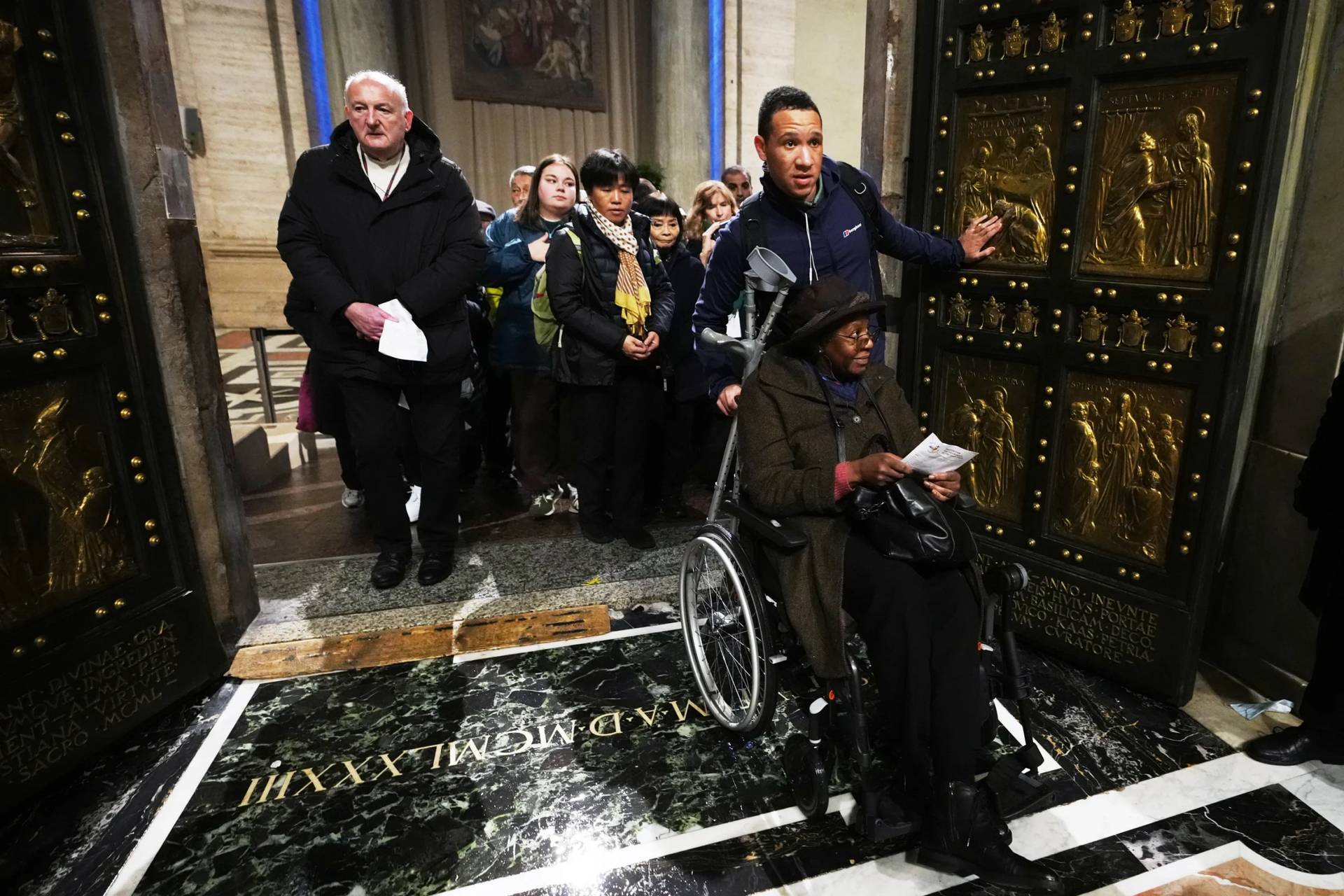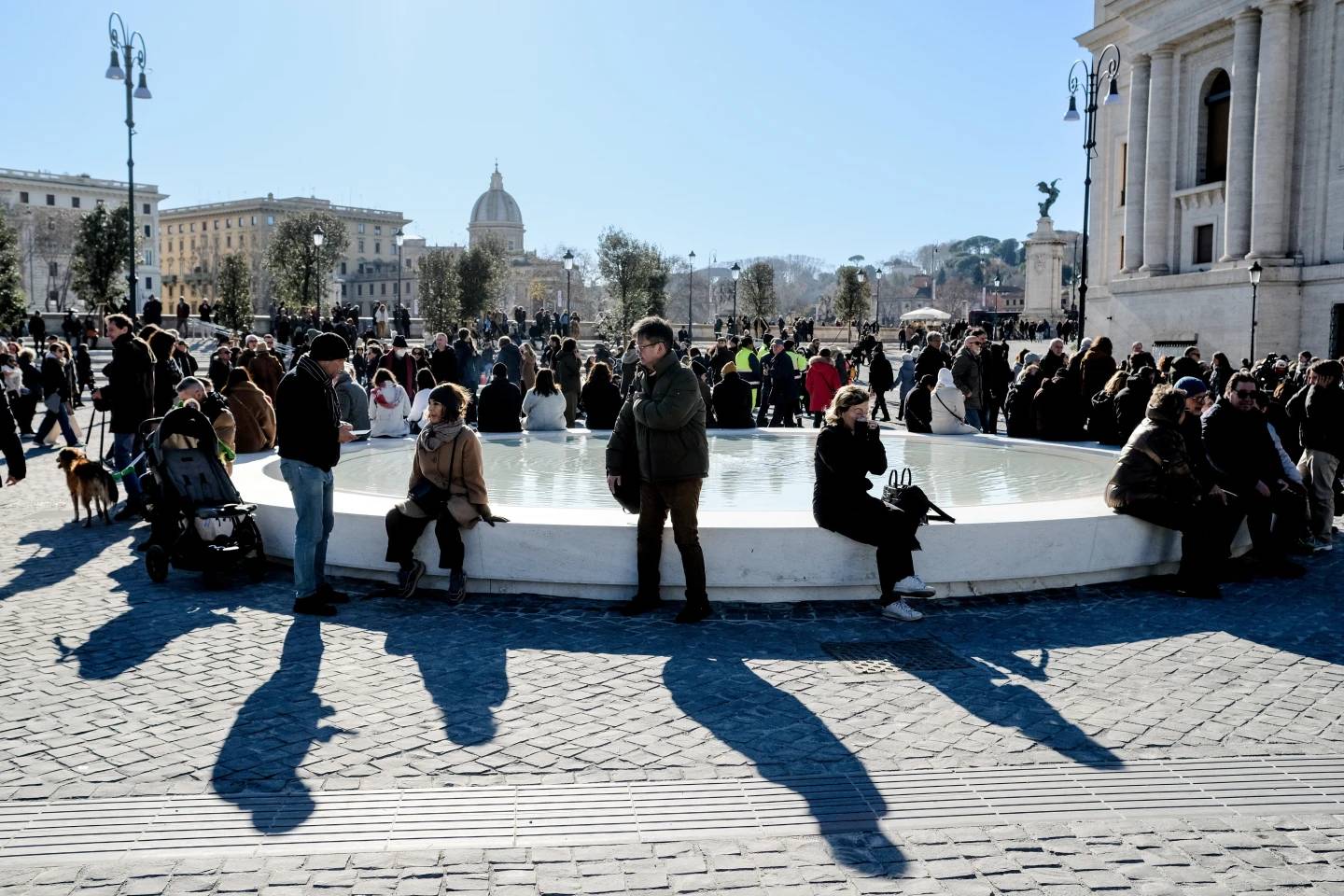– On Thursday Pope Francis accepted the credentials of six new ambassadors to the Holy See, urging them to work toward promoting the common good in their respective countries by adopting tactics of nonviolence at a political level.
“In a particular way, those who hold public office on the national and international levels are called to cultivate a nonviolent style in their consciences and in the exercise of their duties,” the pope said in the December 15 audience.
“This is not the same as weakness or passivity; rather it presupposes firmness, courage and the ability to face issues and conflicts with intellectual honesty, truly seeking the common good over and above all partisan interest, be it ideological, economic or political.”
The six new ambassadors met with Pope Francis in the Clementine Hall in the Vatican. They are from Sweden, Fiji, Moldova, Mauritius, Tunisia and Burundi.
His audience with the diplomats took place as violence and instability plague many areas of the world, including Burundi, which has maintained only a precarious peace in the 10 years since the country underwent an incredibly violent 12-year long civil war.
It also fell just three days after the release of his message for the next World Day of Peace, celebrated January 1 of every year, and which in 2017 will focus on the theme of nonviolence.
Instituted by Blessed Paul VI in 1968, the message is sent to all foreign ministers around the world, and indicates the Holy See’s diplomatic tone during the coming year.
Speaking to the ambassadors, Francis stressed that despite the various conflicts raging throughout the world, peace is achievable, as seen in the examples and efforts of some national and international leaders in the world.
“In the course of the past century, marred by wars and genocides of unheard-of proportions, we have nonetheless seen outstanding examples of how nonviolence, embraced with conviction and practiced consistently, can yield significant results, also on the social and political plane,” he said.
Specific figures cited by the pope in his message for peace included St. Teresa of Calcutta, Mahatma Ghandi, Pashtun independence activist Khan Abdul Ghaffar Khan, Martin Luther King Jr. and Liberian peace activist Leymah Gbowee.
“Some peoples, and indeed entire nations, thanks to the efforts of nonviolent leaders, peacefully achieved the goals of freedom and justice,” he said.
Francis then explained that peace can’t be achieved merely through words alone, but must be pursued through the refusal to participate in a politics of domination and in arms trafficking. This is especially true, he said, when many people in the country may be lacking in the basic necessities for life, such as the case in Venezuela.
“This is the path to pursue now and in the future. This is the way of peace,” he said.
The fact that the new ambassadors come from very different parts of the world, “is always a source of satisfaction” in Rome, the Pope said, “since the horizon of the Holy See is intrinsically universal.”
“This is due to the vocation and mission entrusted by God to the Successor of the Apostle Peter, a mission that is essentially religious, yet in the course of history has also involved relations with states and those who govern them.”
Although the Holy See governs the Vatican City State, the pope explained that its primary values are spiritual and moral, not temporal, as is usually the case for Sovereign States.
In the Holy See is found the “center of unity and direction of the Catholic Church,” he said.
Because of this, it is called “to pass on and bear witness to those spiritual and moral values grounded in the very nature of human beings and society, and which, as such, can be shared by all those committed to the pursuit of the common good.”















